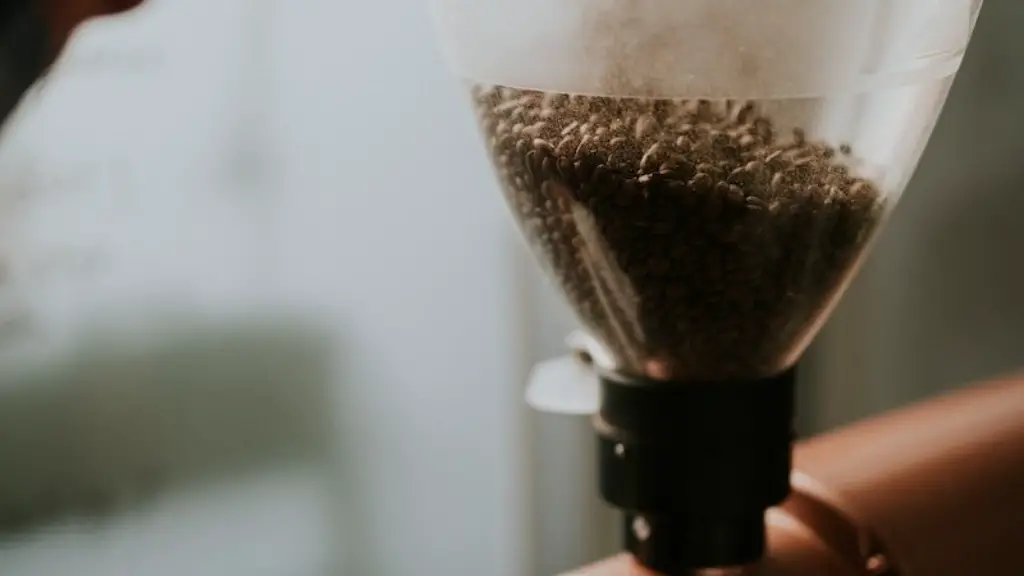The Effects of Caffeine on Young People
Caffeine is a widely noted drug in the human diet, with a long history. Coffee, energy drinks, tea; they all contain caffeine and are consumed all over the world. The question of when individuals are first able to have caffeine beverages is continually debated and many people wonder, can 13 year-olds drink coffee?
Caffeine Intake for Underage Peers
A growing number of middle-school and high-school students are starting to drink caffeinated drinks such as energy drinks, sodas and coffee. This intake often goes unnoticed by the parents, as there is no need for them to go out to buy coffee beverages. Instead, it is easy for them to can find these in their homes.
Pediatric experts are concerned about the implications of introducing coffee and other caffeine containing beverages to children 13 years and younger. In contrast to adults, adolescents’ bodies are more sensitive to caffeine and they require a lower dosage to feel its effects.
This raises the question whether caffeine should be given to this age group and at what level of moderation. To answer this, let’s first have a look at the effects that caffeine has on the human body.
The Effects of Caffeine on the Human Body
Caffeine is a mild stimulant, increasing alertness and triggering the release of adrenaline. This gives the person a burst of energy, while igniting the release of dopamine which make them feel good. However, too much of it can have the opposite effect.
At high doses, caffeine can cause headaches, nausea and can affect the heart rate and digestion. In extreme circumstances, excessive caffeine intake can result in seizure and even death. Experts advise no more than 85 milligrams for a 4-6 year-old, no more than 62 milligrams for a 7-9 year-old, and no more than 103 milligrams for a 13 year old.
Psyhcological Effects
When referring to the psychological effects of caffeine on adolescents, the implications might be more difficult to determine. Whereas the physical effects can be measured, the psychological effects can be more subtle. A few studies have been conducted on the effects of caffeine on the brain and on behavior, which concluded that it can result in hyperactivity, agitation, irritability and insomnia.
Psychiatry professor Dr. Conrad Power says, “Caffeine elevates blood pressure, especially in adolescents who drink energy drinks. It’s been demonstrated to increase the risk of anxiety and depressive symptoms, as well as potentially reduce impulse control.”
The Impact on Educational Development
The educational development of adolescents can also be affected by caffeine consumption. For example, caffeine can affect concentration, attention and wakefulness, leading to symptoms of anxiety. This can cause learning difficulties in young school students and can even lead to poor academic performance.
Risks of Regular Caffeine Intake
Experts confirm that regularly drinking caffeinated beverages such as coffee and energy drinks can result in sleep problems and lead to addiction. This has a direct link with impaired emotional development and can eventually lead to physical and psychological health problems.
Although some coffee drinkers would agree that it brings improved energy levels and focus, the risks should not be ignored. According to Bella Baggot, a dietitian and nutrition specialist, “Coffee and energy drinks contain a highly concentrated level of caffeine, and can lead to symptoms such as anxiousness, irritability and disturbances to sleep.”
The Bottom Line
Ultimately, the decision whether to give children caffeine or not is one to be taken by parents. Despite the idea that teen coffee drinking might be on the rise, experts agree that it should be limited to very occasional beverages and to avoid caffeine containing drinks altogether until the age of 18.
Caffeinated Substitutes
Fortunately, there are substitutes to caffeinated drinks that are becoming increasingly popular. Parents can make a caffeine-free version of their favorite coffee by adding milk or milk substitutes, plus some sweeteners such as honey, or other flavorings.
There are also various types of adult teas that are naturally caffeine-free, such as chamomile, hibiscus, peppermint and turmeric. They are not only caffeine-free, but they are also packed with vitamins, minerals and antioxidants which strengthen the immune system.
Swapping in Healthier Habits
As parents, it is important to talk to our children about the adverse effects of caffeine and to help them form habits for healthier living. Schools can also play a role in supporting children by incorporating activities that educate young people about the potential repercussions of caffeine consumption.
These activities could include the role of caffeine in the body, how to swap in healthier habits and the importance of getting enough sleep. Of course, parents would still need to be proactive in monitoring their children’s caffeine intake, as even occasional coffee drinks can still have an impact.
The Use of Moderation
In conclusion, caffeine is something to be taken seriously, especially by younger people. It is advised to stick to the general consensus that adolescents should not consume coffee until they are of legal drinking age.
However, if parents choose to let their 13 year-old to drink Coffee, they need to take precaution and make sure it is in limited amounts and only on special occasions. In addition, educating children on the effects of caffeine might help young people to be more aware of the risks associated with over consumption.
Alternative Caffeine Sources
Caffeine does not only come from coffee and tea. Other sources that contain caffeine include chocolate, soft drinks and energy drinks. For this reason, parents should also keep a close eye on the beverages and snacks that their children are consuming
A good practice would be to include caffeine-free options such as coconut water and fresh juices into the diet. Whereas these might not be as popular as the soft drinks amongst children, these healthy alternatives are not only caffeine-free, but also packed with essential vitamins and minerals.
Staying Vigilant
It is also important that parents have an open communication with their children and discuss health issues, especially if they decide to let them drink coffee or other caffeinated beverages. This is not to be seen as a punishment, nonetheless it is crucial to observe the signs such as agitation, irritability and mood swings, especially after consuming caffeine.
The Impacts of Advertisements
Unfortunately, children are particularly vulnerable to promotions and advertising of energy drinks and other caffeinated beverages. This often portray a glamorous lifestyle and can have an influence on adolescents.
Therefore, parents should keep an eye out for sneaky caffeine consumption and ensure that healthy habits and appropriate cognitive stimulation is practiced.
Educational Support
Schools, family doctors, dietitians and nutritionists can all play an important role in providing educational support when it comes to caffeine consumption.
At the same time, health professionals could provide ongoing advice to both children and their parents in order to encourage the making of healthier choices in relation to caffeine intake.
Making Informed Decisions
Overall, parents should be provided with thorough information to allow them to make other informed decisions about their children’s caffeine intake.
It is important that young people are also educated on this topic, to develop healthy habits and to avoid the potential risks associated with an over consumption of caffeine.
Summary
Caffeine is a stimulant and in excessive doses it can be harmful to health, particularly for young people. There are many risks associated with allowing 13 year-olds to drink coffee, such as physical, psychological and educational problems. Therefore, experts recommend that parents avoid giving adolescents coffee or other caffeinated beverages until they are of legal drinking age.
Ultimately, the decision to allow someone to drink coffee is a personal one and needs to be taken with caution. Educating children about the potential risks and providing alternatives to caffeinated drinks is key to ensure the development of healthy habits in the future.




